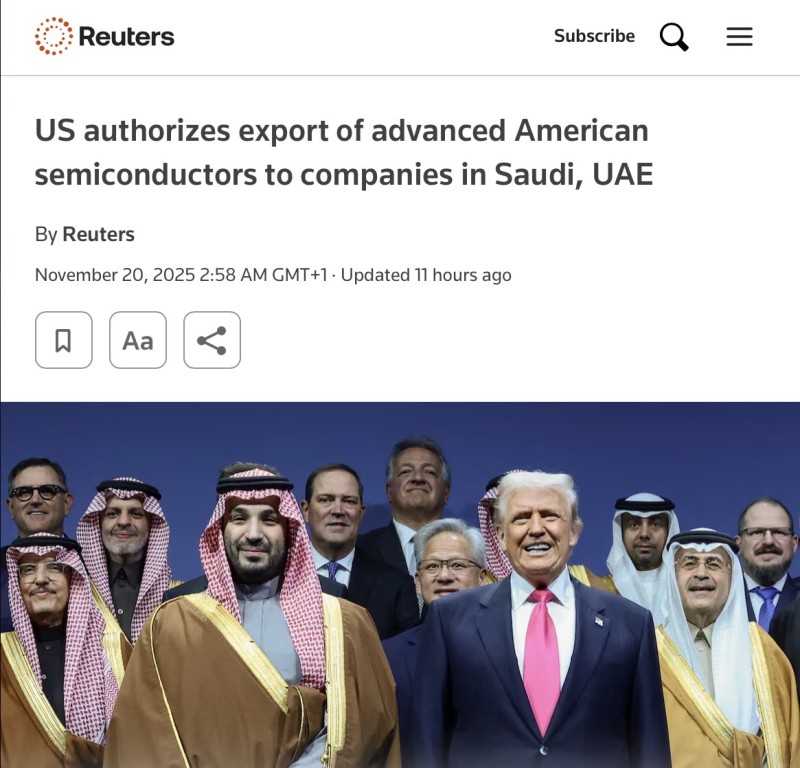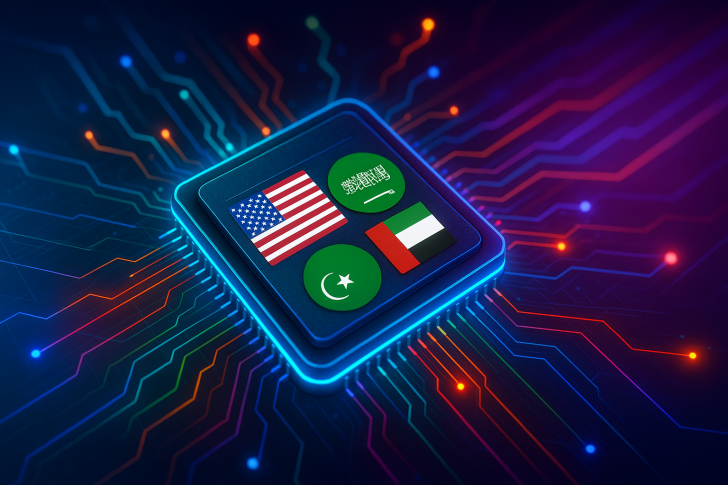⬤ Washington has given the green light for advanced American semiconductors to be shipped to companies in Saudi Arabia and the UAE. This approval marks a significant change in how the US handles AI chip exports, as officials work to strengthen ties with Gulf nations while keeping tight controls on military applications. The decision reflects America's push to maintain its tech leadership without alienating key Middle Eastern allies.

⬤ AI chips have essentially become "the new oil" in global power dynamics, with supply chain control now directly translating to geopolitical leverage. Both Saudi Arabia and the UAE are ramping up efforts to build their own AI infrastructure and break free from dependence on Chinese technology. The US is carefully threading the needle here, backing these partnerships while ensuring sophisticated hardware doesn't end up powering military AI systems or advanced weapons.
⬤ Companies in Riyadh and Abu Dhabi want these high-end chips to run massive data centers and develop their own sovereign AI models. Washington is fine-tuning export rules that encourage economic collaboration with Gulf states but draw hard lines around potential military misuse. It's basically strategic chess played with silicon, where every move matters for long-term technological and political positioning.
⬤ The authorization shows just how central AI hardware has become to global competition. For chip makers, AI infrastructure developers, and international policymakers, this decision confirms that access to advanced semiconductors is now inseparable from geopolitical alliances. As countries scramble to secure top-tier computing power, who controls the chips will increasingly determine who holds the power.
 Saad Ullah
Saad Ullah

 Saad Ullah
Saad Ullah


